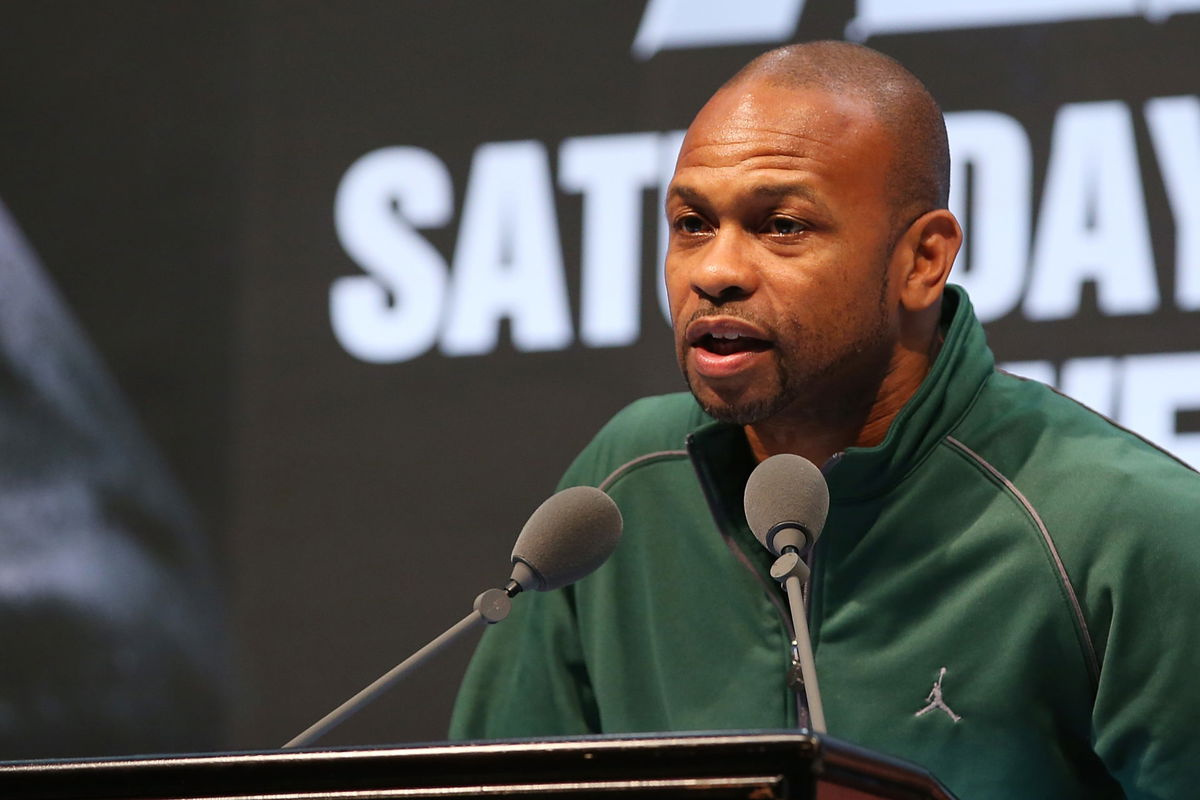
Imago
Via Imago

Imago
Via Imago
“The American won easily; so easily, in fact, that I was positive my four fellow judges would score the fight for the American by a wide margin. So I voted for the Korean to make the score only 4-1 for the American and not embarrass the host country.” These were the words of Hiouad Larbi, one of the five judges in the infamous Park Si-Hun vs. Roy Jones Jr. light-middleweight final at the 1988 Seoul Olympics. But contrary to his expectations, only two of the five judges voted in favor of the American.
Watch What’s Trending Now!
Chasing Olympic gold in Seoul, Roy Jones Jr. entered the final against Park Si-Hun without losing a single round in his previous four bouts. From the opening bell, Jones displayed superior boxing skills with sharp jabs, smooth movement, and complete composure. He landed 86 punches to Park’s 32, dominating every aspect of the fight. Yet in a stunning twist, Jones lost via a 3–2 split decision. Ultimately, as Park Si-Hun claimed the gold while Roy Jones Jr. settled for silver, despite clearly being the superior fighter, that controversial decision left a lasting impact on the then 19 year-old.
ADVERTISEMENT
The moment Roy Jones Jr. completely snapped
Yesterday, WEAR Channel 3 News shared a YouTube post where Roy Jones Jr. reflected on how he felt after receiving silver at the 1988 Olympics. By then, he had already turned amateur the following year and built a 34-fight winning streak before finally losing to Montell Griffin in 1997. Asked about the controversial decision, Roy Jones Jr. grew emotional. “He [Park Si-Hun] told me that he was sorry that he lost the fight, but got the decision. Every other sport, he scored enough points. You win the game, you crossed the line first. You win the race. [It’s] boxing. You don’t know what the hell might happen. So I was like, you know what? I don’t know if I want to keep on boxing.” And why wouldn’t he be heartbroken?
ADVERTISEMENT
The 1988 decision became so notorious that the International Olympic Committee quietly introduced reforms to the amateur scoring system in the following years. To this day, analysts and fans cite the Jones–Park bout as one of the catalysts for change in Olympic judging standards. The bout remains on virtually every “worst decisions in boxing” list, underscoring its cultural significance.
Roy Jones Jr. was a once-in-a-generation talent. With lightning reflexes, blinding speed, and punches that seemed to bend the laws of physics, he made boxing look effortless. He’d fight with his hands down, dance around his opponents, and dodge shots like he had a sixth sense. Then, with one swift move, he’d crack a left hook that almost no one could withstand. It’s no wonder he earned the nickname “Captain Hook.”
ADVERTISEMENT
The Pensacola native finished with a 66-10 record, making boxing look easier than it ever should. Beginning his professional career as a middleweight in 1989, he stopped Ricky Randall with a second-round TKO. From there, he climbed the ladder, becoming a middleweight world champion before making history in 2003 by winning the WBA heavyweight title, the first to do so in over a century. Anyway, circling back to Park Si-Hun, roughly 36 years later, the gold medal was finally returned to its rightful owner. In those three decades, however, Park himself endured years of suffering. How, you ask?
Roy Jones Jr’s rival shares how winning gold left him broken inside
ADVERTISEMENT
The New York Post cited an AP report from 2020 that revealed, “Park, on the other hand, felt ashamed by the victory and spiraled into a severe depression while fighting ‘suicidal urges.’” While Roy Jones Jr. went on to capture world titles across four different weight divisions, Park chose a different path. He retired from boxing, turned down offers to go professional, and instead spent 13 years working as a middle and high school teacher before eventually returning to the sport as a coach.
In a 2020 interview, Park admitted, “I didn’t want my hand to be raised (after the fight with Jones), but it did go up, and my life became gloomy because of that.” Even at the podium, the moment felt hollow. Park smiled weakly, slowly waving a bouquet toward the stands as fans responded with a mix of hesitant cheers and scattered boos.
ADVERTISEMENT
Nearly 36 years later, Park finally returned the gold. On May 30, 2023, he traveled to Roy Jones Jr.’s ranch in Pensacola, Florida, under the pretense of giving an interview. Instead, he surprised Jones by presenting the Olympic gold medal. Through his son, Park told him, “I had the gold medal, but I wanted to give it back to you. It belongs to you.” Jones, stunned, smacked his forehead as he held the medal for the first time and said, “That is crazy.” That said, what are your thoughts on the situation?
ADVERTISEMENT
ADVERTISEMENT
ADVERTISEMENT